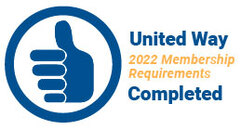|
As I continue to learn about the opioid crisis, one of the most interesting aspects is where people obtain illicit prescription opioids.
I find it fascinating that over half of people who misuse prescription drugs get them from friends and family members. Many were given the prescription opioid by a friend or family member for free, while others took them from a friend or family member without asking. Which brings us to the point of this article: You may unknowingly be providing drugs to someone. If you are storing your medications on a counter top or medicine cabinet, anyone who has access to those areas of your home could be taking your medication. I have heard stories of grandparents who have had their prescriptions stolen by family members, of people who had workers in their homes and their prescriptions “disappeared,” of people having an open house to sell their home and returned to find their medications were gone. Many of us have pain medications leftover from surgeries, tooth extractions, and injuries. We hang on to them for the “just in case.” Just in case, the old injury flares up. Just in case, we get hurt again. Just in case, we might need them in the future. But in doing so, we may be putting ourselves and our loved ones at risk. Instead of keeping those prescriptions around, the best course of action is to get rid of them. In the past, we have been told to flush them down the toilet. Now we know this contributes to the pollution to our ground water. The good news is there are several options. The best way to dispose of medications is to simply take your unused or expired pills to a drug take-back location. The good news is that we have two places to do that in White County. Both the White County Sheriff’s Department and the Monticello City Police Department have drug take-back containers in their lobbies. You don’t have to show ID. You don’t have to talk to anyone. You just walk in, drop in your prescription bottles and walk out. No questions asked. Be aware that they do not take liquids, inhalers or sharps, including needles. In addition, they suggest you remove all labels from the containers or use a black permanent marker to cover any identifying information. And what is done with these medications? They are taken to a specially designed incinerator and destroyed. If you are uncomfortable going to the police or sheriff’s office, you can mix your prescriptions with water in the original container, shake the container until the pills are dissolved, then add dirt, coffee grounds or cat litter to make the medication unusable. Remove labels or black out identifying information and dispose of the closed bottle in the trash. Many communities have Drug Take-Back days. We will notify the public of any such local events. Correctly disposing of unused medications is a simple step that anyone can take to help combat the opioid epidemic. 500 words
0 Comments
Your comment will be posted after it is approved.
Leave a Reply. |
AuthorLynn Saylor is the AmeriCorps member working with the United Against Opioid Abuse Initiative alongside the White County United Way. She is a major facilitator of the United Council on Opioids serving White County and a regular contributor to local media. Archives
October 2020
Categories
All
|

 RSS Feed
RSS Feed
